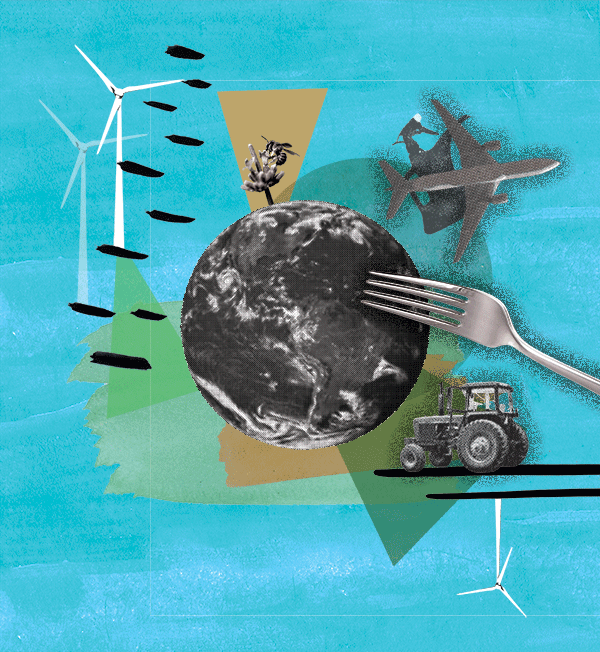We are at a turning point, a moment of crisis and of great opportunity. The events of the last 12 months have proven that collective action can lead to radical change, both in ideology and behaviour, and I hope that we can move forwards armed with the knowledge that a different world is really possible. To be part of the urgent shifts that need to happen – tackling the climate crisis.
I’ve spent most of the last year working on my fourth book, One. Until now I have been gentle in my approach to asking people to shift how they eat, to put plants at the centre of their plates. But time is running out; we need to change how we eat now. And while food and cooking, for me, are absolutely about joy and connection, it’s time to stress the changes we need to make. How we eat can actually help to shift the world we live in.
All the information on the climate crisis, and what we as individuals can do, can feel overwhelming. While we need to be real about the seriousness of what’s going on, I think as individuals it’s important to focus on one manageable step at a time. We make 35,000 decisions a day; that’s a lot of potential for change. What we need, of course, is a systematic change in our food system led by our governments; but each small choice we make matters, and it is up to us to make those choices, as well as demanding action from those who hold the power and the purse strings.
If we want to help slow, and one day (hopefully) begin to reverse, climate change, it is widely agreed that the most powerful thing we can do is eat fewer animals and more plants. For you, that might mean one meal a day without meat (though I would encourage more if you can), for others it might mean fine-tuning your vegan diet. However it looks, start from where you are and don’t look back.
After eating mostly plants, ensuring the food you buy does not go to waste is the next most impactful thing you can do. Not wasting food is an easy win and a very satisfying one, too. Some simple ways to reduce waste: don’t overbuy food, store your food well, and do a quick regular mental inventory of what you have that needs using.
The energy we use when we cook, store and clean up our food is rarely considered as part of the sustainability picture of a meal. Try to cook in one pan or using one heat source; if you turn the oven on, don’t preheat it for more than five mins, and try to cook a couple of things at once. If you are cooking in a pan, put a lid on. Make sure your fridge is not overfilled, while your freezer is more efficient if it is full.
Biodiversity is also an important part of the picture. The world’s capacity to produce food is being undermined by our failure to protect plant and animal life. The world currently relies on a handful of crops, many of which are being drastically over-farmed and are decimating soil, animals and habitats. Supporting sustainable farming if you can is a great way to help, as is varying the foods you eat with as many varieties of local fruit, veg, grains, flours and pulses as you can.
Another consideration is how our food gets to our plate. The way I approach it is to think about where the food originates and what season it might be there right now: is that food in season if it’s fresh, and, if it’s packaged, how long will it last and how quickly will it need to reach its destination to stay in good condition?
I know some of this stuff might seem obvious and I know many of you will already be doing a lot of this in your homes. If that is you, then can you encourage someone else to make these changes? We don’t need a few perfect climate activists, we need a worldwide army making small, frequent and effective changes every day.
One Pot, Pan, Planet by Anna Jones is out now.
This column was initially published in issue 6 of Wicked Leeks magazine. You can read the full magazine for free on Issuu by clicking here.












0 Comments